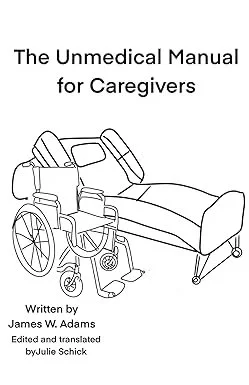“What Would Have Helped Me in the First 3 Weeks of Caregiving” — A Letter to the Me Who Had No Damn Clue
Dear You,
You’re about to carry more weight than you ever trained for.
Nobody handed you a manual. Nobody warned you how loud the silence gets when you’re the only one left to figure it out.
So here it is — not everything, but enough to keep your head above water.
1. You need a damn notebook. (And start building a Care Sheet immediately.)
Write everything down: meds, names, instructions, what changed and when.
But don’t stop there — start collecting info now like:
What they eat and when
Their bathroom habits
Medical history
Mobility level
Emergency contacts
Medication times and side effects
Baseline vitals or behavior
You’ll thank yourself later. So will anyone else you ask to step in.
📄 Need help getting started?
Grab the free Care Sheet template here.
2. You are not “just helping.” You are the care team.
Stop underestimating yourself. You’re not the backup ,you’re the front line now.
3. Learn their baseline — fast.
Know how they normally sound, breathe, eat, move, pee. If something changes, that’s your warning flag.
4. Make peace with asking dumb questions.
Every “dumb” question is a shortcut to not screwing up something important. Nurses do it. Doctors do it. So can you.
5. Your body is part of the job.
Stretch. Breathe. Poop when you get the chance. Drink water even if it’s warm. You won’t get to clock out, so take care of the machine while it’s running.
6. There will be grief — even if no one’s died.
You’re losing parts of a person you love. And parts of yourself. That’s real. Let it hit you, but don’t drown in it.
7. People will offer help. Get specific.
Don’t just say “we’re okay.” Say:
“Can you grab groceries?”
“Can you sit with him for 2 hours?”
“Can you mow the lawn this week?”
Most people want to help — they just don’t know how.
8. Sleep is medicine.
Even a nap. Even on a couch. Even while someone else watches the door. Take the damn nap.
9. It’s okay to not love every second of this.
You can hate the situation and still love the person.
You can cry in the shower and still be a good caregiver.
You can want to quit — and still not be a quitter.
10. You are not alone.
Even if it feels like you are.
There’s a whole world of us out here, behind closed doors, doing this work in the dark.
You don’t have to keep doing it alone.
Find a caregiver support group — in person if you can, or online if that’s what fits.
You’ll be surprised how much lighter it feels just being around people who get it.
💬 You’re always welcome in our group too:
[The Unmedical Skills Lab for Caregivers (Facebook Group)
You're not weak — you're untrained.
And that? That can change.
You're going to make mistakes. That’s okay.
But you’re also going to matter more than you ever have before.
And that counts for something.
✍️ Written from experience, not theory.
📘 Need a guide? [Get The Unmedical Manual for Caregivers here.
📝 Want a tool to help you step away without a breakdown? [Grab the free Care Sheet template → Downloadable care sheet to fill out.
🔗 More caregiver blog posts available at: Caregiver's Corner (Blog)
— J.W.
The Unmedical Manual
